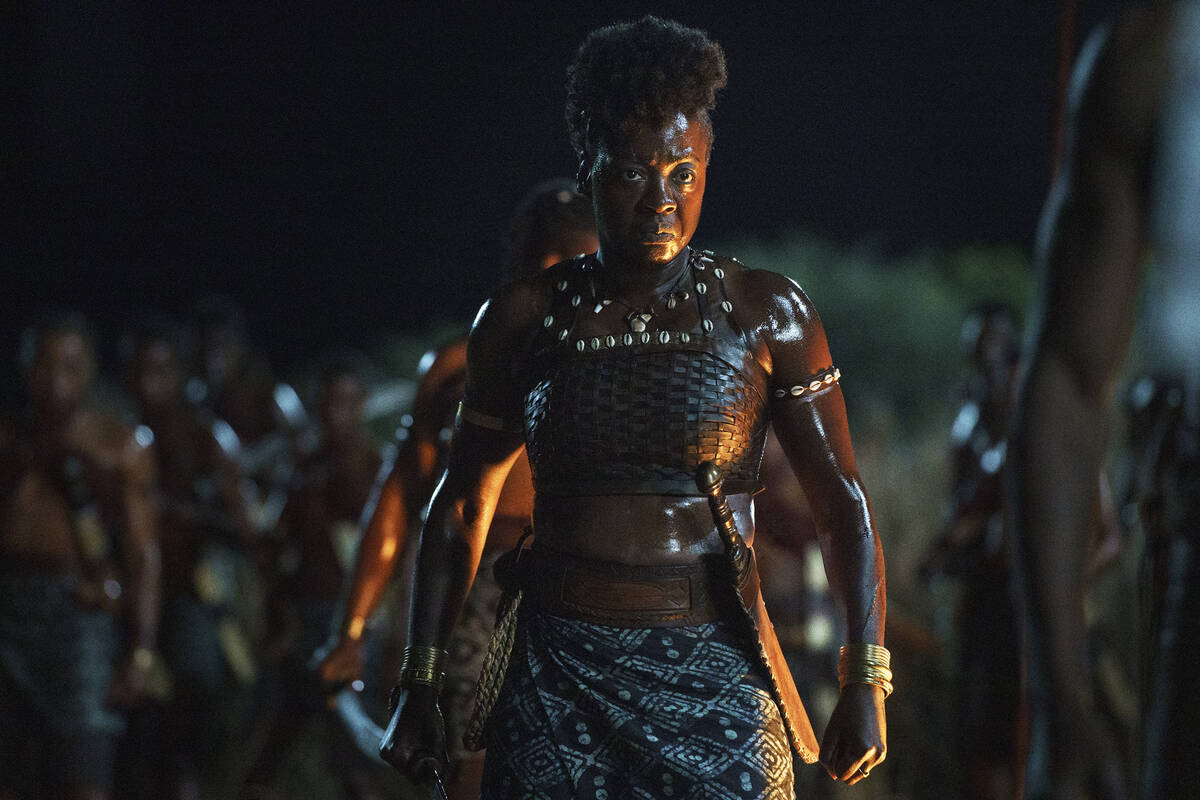Viola Davis climbs from ‘rock bottom’ to ‘Woman King’

Viola Davis can easily list her greatest “hits.”
“ ‘You’re not pretty. You’re not feminine. You’re not right for certain roles,’ ” she recalls in a phone interview.
“It broke my heart and made me angry,” the actress says. “I won’t name the projects, but I was in a world that kept spitting me out.
“It pissed me off, but there is value to a well-placed f— it,” the 57-year-old adds. “You hit your bottom, and then you begin to create a new life for yourself. Rock bottom is the start.”
Part of that new life was creating JuVee Productions with her husband, Julius Tennon, to launch movies like “The Woman King,” opening Sept. 16. Davis portrays female warrior and general Nanisca in the historical saga inspired by the true events of the all-female Agojie unit. They protected the west African kingdom of Dahomey from all enemies in the 18th and 19th centuries.
When she is not saving kingdoms, Davis lives in L.A. with actor-producer Tennon and daughter Genesis, 12.
Review-Journal: Tell us about “The Woman King.”
Viola Davis: This movie took six years. It came to me from Maria Bello, an actress who has done tons of philanthropy work in Africa. From there on, it started to take shape, but slowly. We pitched it at every studio. Colorism is alive and well and kicking. There is a deficit of roles for Black actresses and a deficit of value. I kept hearing, “Is there some way we could put a man in it?” I said, “It’s about a female unit?” Then I heard, “Can we still put a man in?” We said, “We’re not going to change the script. The integrity of the story means the most.”
Is it true that you did most of your own stunts?
I was the OG warrior in this movie, but I trained hard. The thing about training: I don’t care how much the fear is. You have a 250-pound man you have to flip, you have to believe you can do it. You have to tap into that warrior spirit, the part of you that believes that being a woman, being smaller than that person coming at you, that you can still do it. That’s what I loved about four hours of martial arts and weight lifting training a day followed by sprinting on a treadmill. I did this for four months, and I’d say, “You know, I’m 57. I could die on this treadmill. I’m losing oxygen.” But I still did it.
How did you get into the female warrior mode? And what did you learn about the real-life women warriors?
These young women were recruited as early as age 8. They were the ones the king didn’t want to marry. They couldn’t be controlled. They were to fight in the military unit. They couldn’t have children, couldn’t get married and couldn’t have sex. These were fascinating women. I did my research, but you also have to rely on life. I was in South Africa for five months just living, working and training. You soak in the spirit of it all.
You didn’t have it easy as a child, growing up poor and one of six kids in Rhode Island. How did that affect your adult life?
It formed me. I learned at an early age to appreciate, appreciate, appreciate. When you get your heart broken in life, you appreciate deeper. I appreciate clean sheets, good food and a new bed because there were times in life when I didn’t have those things. I appreciate things other people take for granted.
What was it like after your Oscar nomination for “The Help”?
When it was over, I thought, “Now what?” I kept getting the same roles but asked myself, “How else would they cast a dark-skinned Black woman?” I’d get two days there, three days of work on a project and that was it. The only thing I could do is create roles for myself. I wanted to seek material to showcase people who needed to be seen fully and completely.
What is a piece of great advice you hold and will pass on?
Even if you do mess up, you’re still worth it. You don’t have to do anything and you’re always worth it.
What does acting still teach you?
Every character you do is a therapy session.
What do you want the takeaway from your career to be?
I want people to be moved by my life and moved by the roles. Above all, I just want people to feel less alone. We went through a pandemic and, for two years, so many people were alone. It’s crappy to feel so isolated. It’s hard to connect with people even now. If I can do anything that makes people feel less alone, then I’ve done my job.
What is your idea of a great Sunday if you’re not working?
Church. Breakfast. Reading. I have a 12-year-old daughter, so we’ll go watch a movie with lots of popcorn. Come home, make dinner, homework, a soak in the Jacuzzi. That’s a nice Sunday.